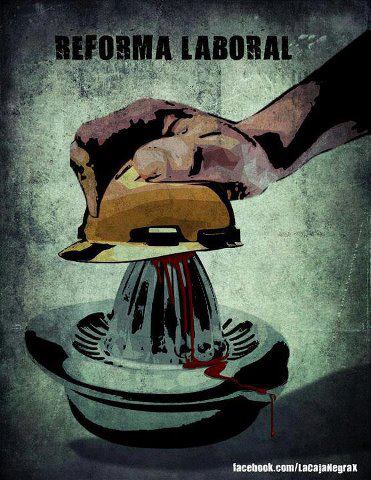23 October, 2012Write to Mexico’s Senators here and remind them of the international opposition to the regressive reforms proposed for the country’s labour legislation.
The dangerous changes to the labour law in Mexico stand to legalize the mass abuse of workers’ rights throughout the country. The bill was sent back to the lower house of parliament on Tuesday by the Senate, with ammendments over trade union transparancy, but both houses' majorities agree on most of the anti-worker measures. Join unions from around the world in writing your message of condemnation directly to five key senators.
As previously reported, the law was prepared by outgoing President Calderón, an enemy to Mexico’s workers throughout his six-year term, and has the support of the pro-corporate political alliance of the largest parties PRI and PAN. An undemocratic fast-track process has moved the law through parliament without allowing for proper deliberations.
Much of the abuses that stand to be permitted by these changes widely occur already, but for them to be legalized would remove the last protections for workers and trade union freedoms in the country. This year the executive branch of the Mexican government has intensified its crackdown on independent unions and has presented this regressive labour law reform initiative.
A major change will be to increase employer flexibility when dealing with the workforce. This means rampant use of sub-contracting, temporary and short-term contracts, all forms of precarious work that aim to destroy all possibility of organizing and bargaining collectively through independent trade unions. Any worker on a short-term contract who stands up to abuse of their core labour rights or occupational health and safety will risk not having their contract renewed and will have no legal protection. All power is handed to the employer by this trend towards more precarious work.
The current federal labour law does need reform; it allows for loopholes and is weak in terms of labour protections. However the current changes passing between the two houses of parliament do nothing to address these problems and only cause further damage.
The outrageous widespread problem of protection contracts in Mexico, as denounced in IndustriALL's (ex IMF) complaint to the ILO Committee on Freedom of Association has been condemned by the entire trade union movement, and by the International Labour Organisation Governing Body’s recommendations in 2011 calling on the Mexican government to investigate the use of protection contracts that restrict the collective bargaining process.

